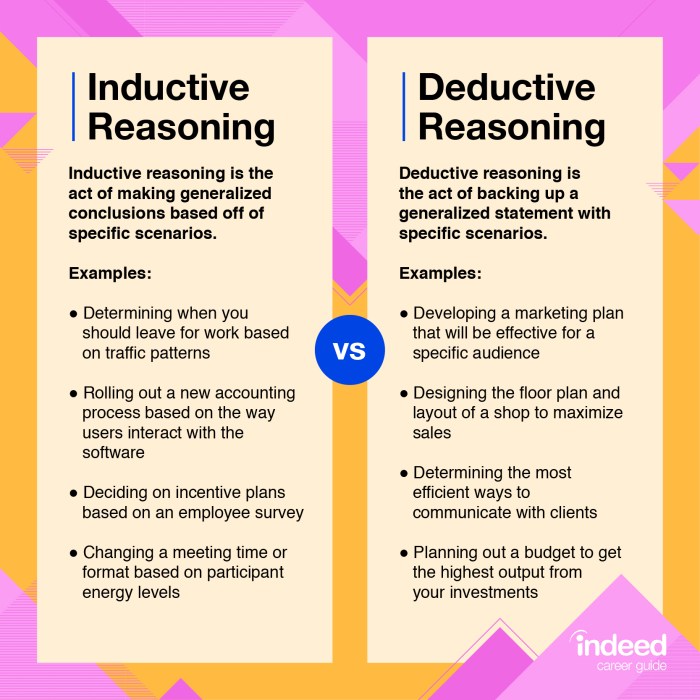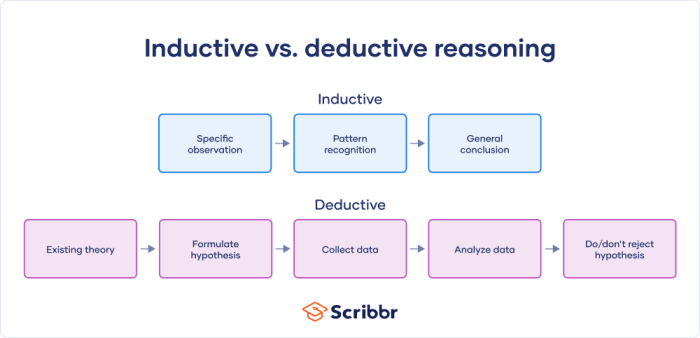The researchers failure to protect research subjects from deductive disclosure – The researchers’ failure to protect research subjects from deductive disclosure is a serious issue that can have far-reaching consequences. Deductive disclosure occurs when an individual can use publicly available information to identify a research subject, even if the subject’s name or other identifying information is not explicitly disclosed in the research data.
This can pose a significant risk to research subjects, as it can lead to them being harassed, discriminated against, or even harmed.
There are a number of reasons why researchers may fail to protect research subjects from deductive disclosure. In some cases, researchers may simply be unaware of the risks involved. In other cases, they may not have the resources or expertise to implement adequate safeguards.
Whatever the reason, the failure to protect research subjects from deductive disclosure is a serious breach of ethical conduct.
Researchers’ Responsibilities

Researchers have an ethical obligation to protect research subjects from harm. This includes protecting them from deductive disclosure, which is the process of inferring information about a research subject based on other information that is known about them. Deductive disclosure can occur when researchers do not take adequate steps to de-identify data, or when they share data with third parties who may not be able to protect it.
Potential harm that can result from deductive disclosure includes:
- Loss of privacy
- Discrimination
- Harassment
- Violence
Failure to Protect Research Subjects: The Researchers Failure To Protect Research Subjects From Deductive Disclosure
Researchers may fail to protect research subjects from deductive disclosure for a number of reasons, including:
- Lack of awareness of the risks of deductive disclosure
- Lack of training in data de-identification techniques
- Inadequate oversight by institutional review boards (IRBs)
- Pressure to publish results quickly
Common mistakes or oversights that can lead to deductive disclosure include:
- Using easily identifiable identifiers in data, such as names, addresses, or social security numbers
- Not removing all identifying information from data before sharing it with third parties
- Not encrypting data
- Not storing data securely
Consequences of Failure

The consequences of failing to protect research subjects from deductive disclosure can be severe. For research subjects, it can lead to loss of privacy, discrimination, harassment, or even violence. For the research community, it can damage trust and make it more difficult to recruit research subjects in the future.
For society as a whole, it can undermine the integrity of research and make it more difficult to make informed decisions about important issues.
Recommendations for Improvement

Researchers can improve their practices to prevent deductive disclosure by:
- Educating themselves about the risks of deductive disclosure
- Getting training in data de-identification techniques
- Working with IRBs to ensure that research protocols adequately protect research subjects
- Taking the time to de-identify data carefully before sharing it with third parties
- Encrypting data
- Storing data securely
IRBs and other oversight bodies can also play a role in preventing deductive disclosure by:
- Requiring researchers to submit data de-identification plans for review
- Providing training to researchers on data de-identification techniques
- Monitoring research studies to ensure that researchers are following approved data de-identification plans
Legal and Ethical Implications

Failing to protect research subjects from deductive disclosure can have legal and ethical implications. Researchers may be held liable for damages if their negligence results in harm to research subjects. Additionally, failing to protect research subjects from deductive disclosure violates the ethical principles of beneficence and non-maleficence.
In some cases, failing to protect research subjects from deductive disclosure may also constitute a breach of contract. For example, if a researcher agrees to keep research data confidential, but then fails to take adequate steps to protect it from deductive disclosure, this may be considered a breach of contract.
Answers to Common Questions
What is deductive disclosure?
Deductive disclosure occurs when an individual can use publicly available information to identify a research subject, even if the subject’s name or other identifying information is not explicitly disclosed in the research data.
What are the risks of deductive disclosure?
Deductive disclosure can pose a significant risk to research subjects, as it can lead to them being harassed, discriminated against, or even harmed.
What can researchers do to protect research subjects from deductive disclosure?
Researchers can take a number of steps to protect research subjects from deductive disclosure, including obtaining informed consent from subjects, using anonymization techniques to protect their identities, and limiting the amount of personal information that is collected and stored.